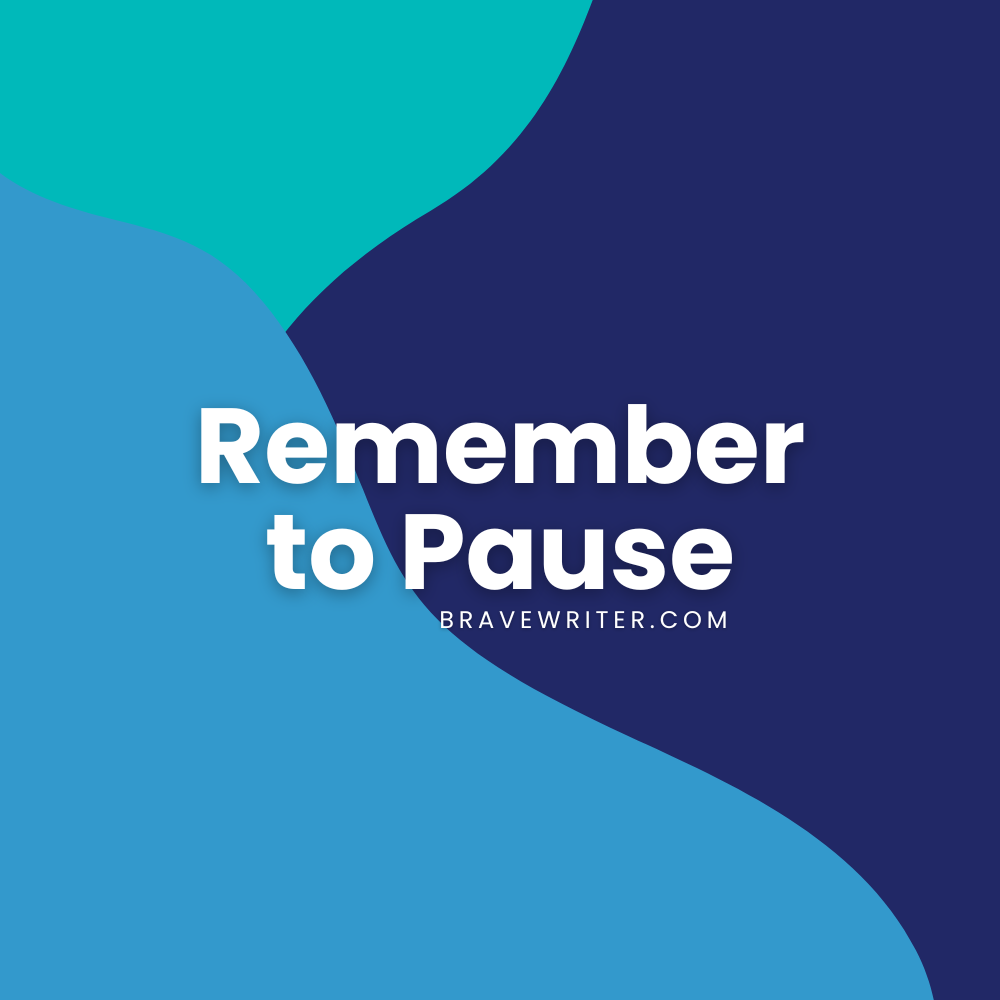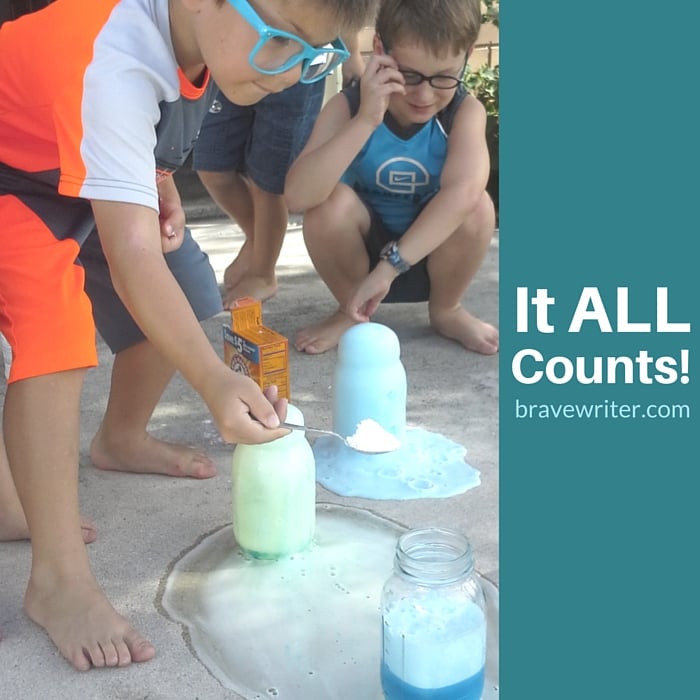Julie,
I just finished watching the webinar on Copywork and Dictation and I have to tell you the impact it had on me.
Brave Writer is so much more than a Language Arts program. It surpasses all the parenting coaching I’ve undertaken, all the advice looked to throughout my parenting life from psychologists, teachers, friends, all the workshops on teaching and learning in all areas.
It is indeed, as you say, a lifestyle in loving life and connecting with your children.
My little man is about to turn 11 and he has suffered greatly through the years. Last year he went through a depression, saying things like ‘What’s the point, I may as well kill myself,’ feeling so sad saying he had no friends, no-one liked him, etc. (he has life long friends scattered around but struggled to have everyday relationships with kids his age in educational settings). And he would face the world every day from the perspective that life was dangerous and acted accordingly.
He absolutely refused to go to school in the end and I am finally letting go of the guilt I have carried by listening to the school rather than listening to him.
We have since moved to the Sunshine Coast, live on the beach, started homeschooling (including his little sister aged nearly 8) and with this new focus on connection, presence, time in nature, and ‘letting go’ we are hearing him laugh again, seeing him smile again, witnessing him choose happily his own company over the company of some of the unkind children in the street. And at the same time make new friends.
After watching this webinar, I am moved to tears as I watched you, with such a grounded and joyful energy remind us to follow the path of learning together with our children and seeing it as joyful rather than a task.
I was beginning to put myself under pressure again, thinking I wasn’t doing enough and I know very well when I do that, all the wonderful, whimsical interactions come to grinding halt and the learning stops anyway.
I wish to purchase that webinar to watch it again and again.
My heartfelt thanks to you for putting yourself out there for us all to gain the best perspective in life and parenting. To trust.
Bella
Watch the webinar:
Everything You Always Wanted to Know about Copywork and Dictation
Image by Carissa Rogers (cc tinted)


























